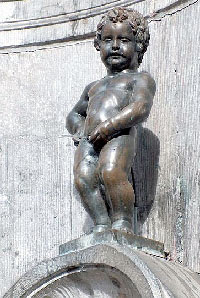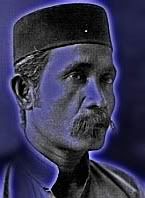16. How to...Beratang
When your plate's full and hunger's panging, beratang is the word to avoid especially in a crowd. Beratang is a gregarious act that is often done for mutual benefit but sometimes it is directed towards something or someone in common, with or without benefit – jointly or severally - to the persons involved. Yet in spite of beratang’s seemingly charitable pose, its participants can still be accused of neglect, as in the popular phrase, “Orang-orang tu dok beratang tèngök je, keliik-keliik!” In other words, they just watched, without as much as a finger raised - a fist fight, a stealing act, or someone disgracing himself. It is the word beratang here that gives the poignancy to the act for all its claims of togetherness.
Beratang in its passive or active form is the staff of life in the East Coast because we were led to it very young, by the posture of ggedik, a source of division in this world between those who have food on their plates and those who have not a wee bit. In a punny way, ggedik in itself embraces the two aspects of the divide: the ggedik person so rich in life’s possessions that all s/he has to do in a working day is to just shake the legs (ggedik kaki), or the imploring boy who keeps cadging for a bite of his friend’s belebat (banana pud). There will be an old lady here somewhere, looking down from the top: “Beratanglah denge dia tu Che Awang pong!” Go on, share it with him son!
Now that I’ve come this far I’ve just realised that there’s no proper word for ‘them’ in Trengganuspeak, and there’s no word for beratang in standard language. You can say that mereka (standardspeak, ‘they’) is a word that you recognise, but how often have you used it in Trengganuspeak to refer to a crowd? In Kedah they have dèpa, in Kelantanspeak there’s dèmö tu, but in Trengganuspeak we ignore the crowd. In the sentence above I have resorted to Orang-orang tu as an artificial construct because orang (‘people’, ‘persons’) is a known word and used in Trengganuspeak, but even then that’s not how we describe ‘others’. To call them mereka in this case, would put in a very strange sense indeed. There are no innocent bystanders (mereka, they) in our crowd, we’d prefer them to be ‘you lot’, mu, mung), Mung dok beratang tengok je...you just stood there watching, you lot.
But the curioser thing is that whilst beratang is widely known in Eastern life, there’s no equivalent for it in Standardspeak. In fact they do not have a word at all for it out West where they use kongsi, a Chinese loan-word. Whilst kongsi gives a sense of ‘sharing’ and goes further to embrace ‘partnerships’, it is still not the same as beratang because while we can share all the other things, we can still, in all our goodness, beratang tumbok, i.e. to get together and shower thumps on someone else. Put kongsi in there instead of our ‘b’ word and the phrase is as good as dead, and the victim-lad will want his punches gift-wrapped to take home in a box.
In less bositerous times there’s camaraderie and beratang expresses itself mostly in food. ”Mari kita beratang makang!”, let’s all eat together now; but you can also beratang your griefs, your joys, your prayers, your hopes. And then atishoooo! comes a sneeze on the bread, “Excuse me, my cold!” and that’s the end of beratang for reasons of health and finis too, definitely, for your ggedik.


